Water set to be the “challenge of the century”
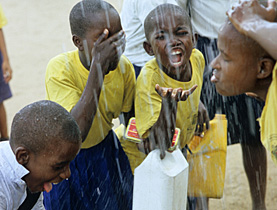
For the Swiss, fresh water means turning on the tap. For someone in Mozambique, however, it could mean a 30-minute walk to a dirty water hole.
This huge discrepancy has been highlighted at the Water for All exhibition at Zurich’s Bärengasse Museum, organised by the Swiss aid organisation, Helvetas.
“Water for all is the challenge of the 21st century. We know that oil will be running out, but water is more important for life,” Beatrice Burgherr, the exhibition’s coordinator, told swissinfo.
“We need water for drinking and surviving every day, so it’s not an issue that we can afford to postpone.”
On entering the display the visitor is confronted with a water cooler full of filthy water and the question, “would you drink this?”
According to the United Nations, 1.1 billion people do not have access to clean water and 2.6 billion lack adequate sanitation. An estimated 5,000 children die each day from the consequences of unsanitary conditions. Africa and parts of Asia are particularly affected.
Shortages
Water shortages are already rife, aggravated by an increasing population and climate change. This can also lead to conflict within countries – in Mali established farmers and nomad goatherds have clashed in the west of the country – as well as across borders.
Helvetas has been tackling water issues in the field. A film on show at the exhibition tells the story of the formidable Fatima, a local Helvetas employee in Mozambique, who races around rural areas on her motorbike overseeing water projects.
Currently in Mozambique only around one quarter of people in countryside areas have access to clean water. Child mortality rates are high as a result, according to Helvetas.
“We see two villages in the film where they don’t have any water and they have to walk half an hour each time to a dirty water hole,” Burgherr said.
“But we also see a village where there is a water pump. The villagers are in better health, and they have time to go to school or work because they don’t have to carry the water any more.”
Helvetas ensures that villages are involved in the building of pumps and that decisions are made democratically, stresses Burgherr.
Low-cost solutions
Other solutions include reduced water use drip irrigation for agriculture, and the Sodis method for plastic PET bottles, promoted by Swiss researchers, in which the sun’s UV rays are used to kill harmful water bacteria. “These methods don’t cost much,” said Burgherr.
Explaining health and clean water issues – as Fatima does – is an integral part of the non-governmental organisation’s work. But education is also needed in Switzerland.
“It’s difficult to explain to a Swiss why he or she should care about problems in developing countries,” admitted Burgherr.
“We don’t have this problem of not having enough water, but we have experienced having too much water,” she added, referring to occasional floods and landslides.
In Switzerland a person uses on average around 175 litres of water per day. In developing countries, people use on average 45 litres per person per day but in the arid Sahel belt of Mali, it is as low as 12-20 litres.
“We are trying to make people think what could I do with 12 litres a day, also in the household, when I already drink three to six litres of water a day?” said Burgherr.
West not immune
Europe is not without its own water problems. A prognosis for world water shortages in 2050, on display at the exhibition, shows two European countries affected – Britain and Poland.
In Switzerland – known as the water tower of Europe – water quality became an issue in the hot summer of 2003, says Burgherr. Hormones and other medicines cannot be totally filtered out of the mains supply, which has already led to sexual changes in fish.
The international community is acting. Halving the proportion of people without access to safe drinking water and basic sanitation by 2015 is one of the UN’s millennium development goals, to which Switzerland has signed up. But more needs to be done, says Helvetas.
“We think the governments in developing countries definitely have to put priority on water and toilets and not on wars,” said Burgherr.
“Developed countries, which are often donors, should also ensure that priority is given to these issues and, politically, in the long run global warming issues and pollution must be solved.”
swissinfo, Isobel Leybold-Johnson in Zurich
The Water for All exhibition runs until March 29 at the Bärengasse Museum in Zurich and is organised in cooperation with the Zurich authorities. The travelling display has already been shown in several other Swiss cities.
It explains facts in the water crisis and shows through examples how people are affected and what can be done. A programme of extra events is planned.
The NGO has been involved in water projects for many years and last year promoted a sanitation campaign to coincide with the UN Year of Sanitation. It believes there can be no development without proper access to water.
It is one of the UN’s Millennium Goals to “halve, by 2015, the proportion of people without sustainable access to safe drinking water and basic sanitation”.
The UN has also declared 2005-2115 the Water for Life decade and World Water Day is held each year on March 22.
The Swiss Agency for Development and Cooperation supports water projects. It places the use of water for people and their food security at the centre of its work. Its activities also cover the protection of water sources and their ecosystems, in line with the principles of the Integrated Water Resources Management worldwide programme.
At international level, the SDC invests up to SFr90 million ($79 million) per year in work in international organisations and 170 projects in the field for water.

In compliance with the JTI standards
More: SWI swissinfo.ch certified by the Journalism Trust Initiative

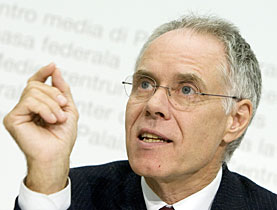
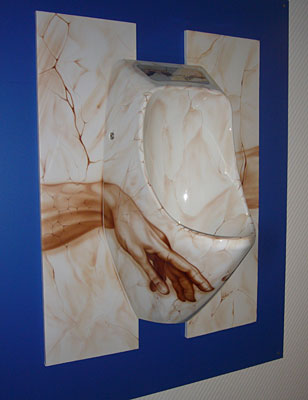
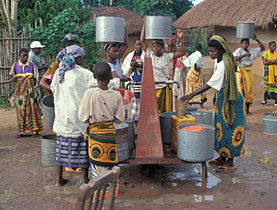
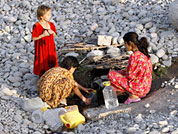
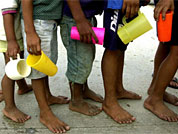
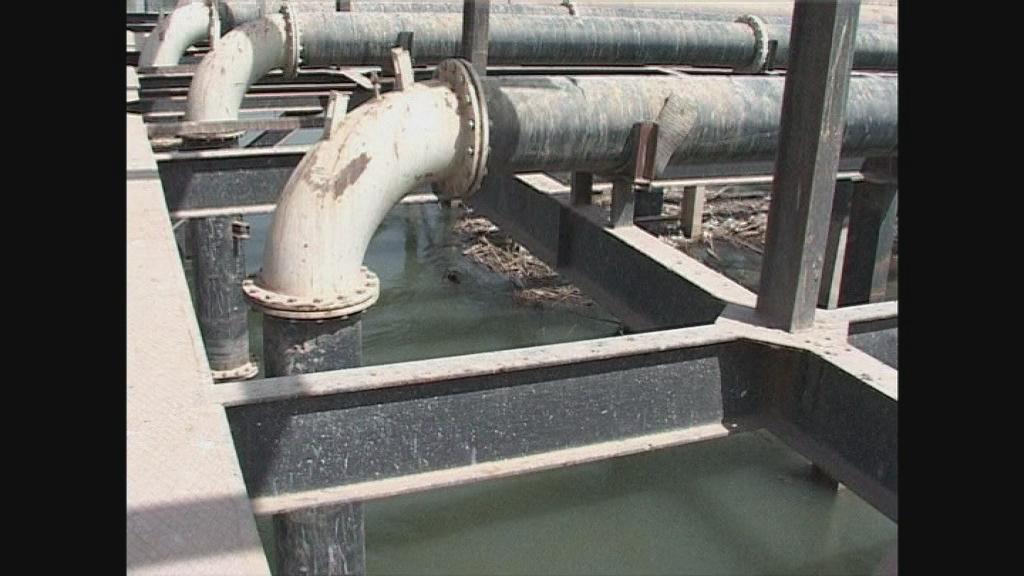
You can find an overview of ongoing debates with our journalists here. Please join us!
If you want to start a conversation about a topic raised in this article or want to report factual errors, email us at english@swissinfo.ch.